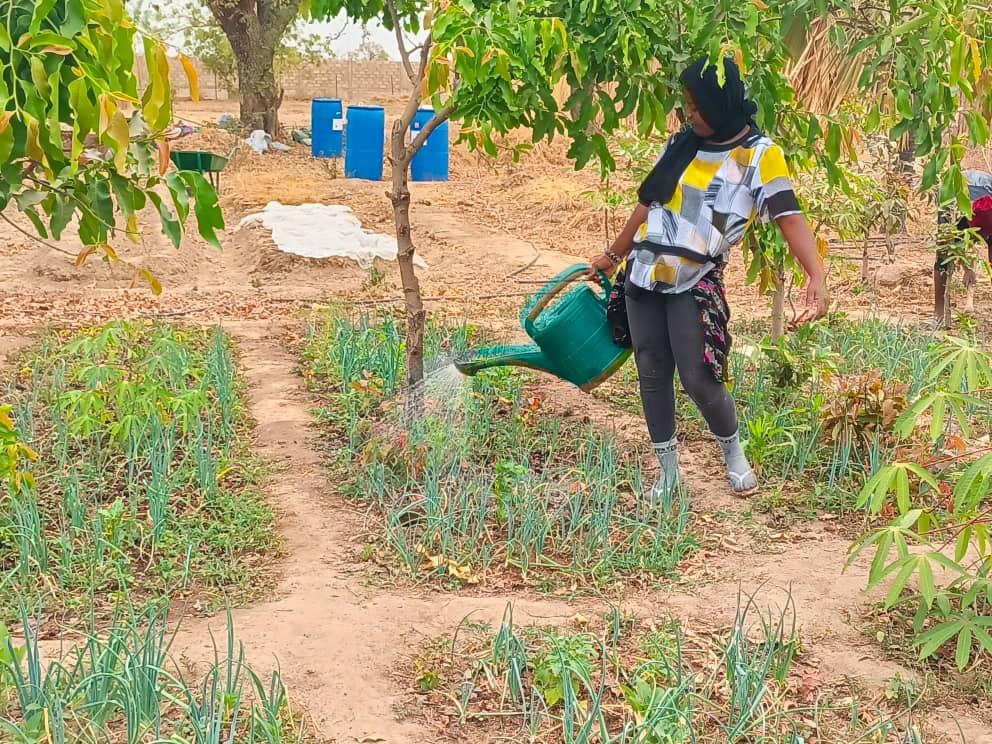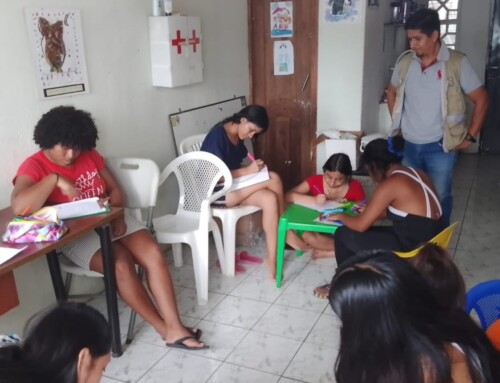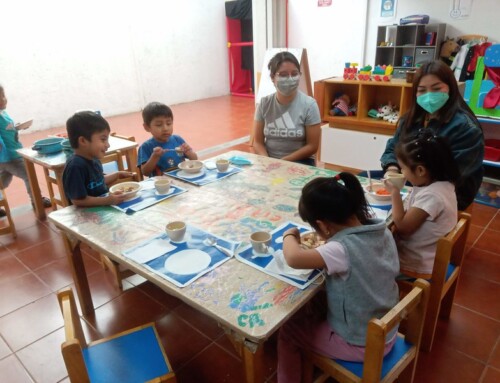The market garden project continues to develop well. Twenty two young mothers are currently being trained to ensure the continuity of the programme. The training is provided by a former resident of the village who was recruited by Keoogo as an agro-ecological facilitator. She is supervised by the Euro-African Association for the Anthropology of Social Change and Development (APAD), which specialises in agro-ecological market gardening. The training continues to consist of a practical phase, in addition to raising awareness of the interactions between plants, animals, humans and the environment. Accompanied by the facilitator, the new trainees learn how to make compost, design beds, plant nurseries, transplant plants and treat plants with neem leaf and ginger.
For the second phase of the project, the aim is twofold, that of creating a nursery to make the garden as independent as possible from external seed purchases so that from next year, the budget for seed purchases will be very low. In addition, we aim to speed up planting by preparing seedlings in our nursery and consequently seeds have been purchased for the first harvest of this second phase of the project. An effort was made to acquire organic or agro-ecological seeds.
New beds have been planted in the garden and existing beds have been integrated into the overall cultivation plan. As before, each young mother was given responsibility for a certain number of beds, for watering, weeding, hoeing and staking, and for all the other operations required for cultivation. A crop association and rotation system was established.
The major innovation in this second phase of the project is undoubtedly the development of management tools to record and monitor data generated by the garden in order to weigh and quantify all the vegetables and fruit produced by the garden. These are then distributed to the nursery school for the children’s snacks and to the kitchen, to improve the diet of the young mothers and their children. By the end of the year, this information will enable us to know the annual production of the garden; add value to this production; know whether production meets consumption needs or what particular vegetables or fruit are missing; find out whether there are any surpluses to launch another economic activity, and if so, which one. The production and distribution for the school and the kitchen are being monitored by the garden coordinator and the Keoogo administrative manager.
The young mothers who left the village are still being monitored. Of the thirty six who received training and then returned to their families: eleven have found jobs; seven are on training courses; ten are continuing their baking activities and eight are now living outside Burkina Faso.






